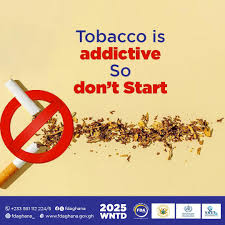Herbert Krapa, the Minister of State at the Ministry of Energy in Ghana, has made a strong appeal to global investors in the oil and gas industry, highlighting the country’s stable investment climate, democratic governance, and peaceful atmosphere.
He urged industry leaders and investors to capitalize on the opportunities present in Ghana’s oil and gas sector, which includes exploration, production, and the development of gas infrastructure.
Speaking at the opening ceremony of the 30th Africa Oil Week (AOW), a week-long event held in Cape Town, South Africa, Mr. Krapa emphasized that the rich resources in Ghana make the country a promising destination for energy investments.
“I believe that investing to bring out the resources under the ground would be worth the investment.
“I invite everybody here in Ghana to explore and take advantage of the opportunities that exist in our country in terms of oil and gas, exploration and production, services, gas infrastructure, and all the other auxiliary services that such an opportunity comes with.”
Herbert Krapa, the Minister of State at the Ministry of Energy in Ghana
The Africa Oil Week is a prestigious global event that brings together governments, regulators, investors, and service providers to discuss policy development, secure investments, and build partnerships that drive sustainable energy transformation across the African continent.
Mr. Krapa highlighted Ghana’s growing prominence in the global oil and gas industry. Since its entry into exploration and production, Ghana has made major strides, with significant discoveries contributing to the nation’s energy landscape.
He noted that Ghana’s four sedimentary basins—three offshore and one onshore—have shown great potential, particularly with three producing fields and around 40 oil and gas discoveries.
“This affirms the tremendous potential that we have in Ghana in terms of carbon production.
“We have worked tirelessly to ensure efficient exploitation and optimization of our petroleum resources through several policy reforms and practical steps to implement these policies.”
Herbert Krapa, the Minister of State at the Ministry of Energy in Ghana
Ghana’s progress in the sector, according to Mr. Krapa, aligns with the country’s broader vision to transition towards more sustainable exploration and production practices, ensuring a balance between energy extraction and environmental considerations.
Mr. Krapa emphasized the importance of a transparent and predictable legal and regulatory framework to attract investors. The government, he explained, has taken measures to ensure the oil and gas sector is governed by clear legal structures that provide security for investors.
Ghana’s laws allow companies operating in the upstream industry to carry forward losses from petroleum operations for five years, recover all operational costs, and capitalize exploration and development expenses over a five-year period.
These frameworks, according to Mr. Krapa, are designed to mitigate risks for companies during the exploration and production phases and ensure that the state’s share of revenue from these ventures remains robust throughout the project lifecycle.
“We do that so that most of the risks are eliminated, and much of the investment is at the outset in terms of exploration and production stages,” Mr. Krapa explained.
He further elaborated that companies currently in production are also given the flexibility to conduct exploration activities within their development and production areas.
This provision ensures that prospects that were previously considered non-commercial can be revisited and potentially developed without the need for new petroleum agreements.
Local Content and Service Delivery

In terms of service delivery, Mr. Krapa highlighted the role of local content regulations in facilitating smooth business operations for international companies in Ghana.
Companies can now undertake contracts without having to incorporate new channels, as strategic partnerships between local and international firms have streamlined these processes.
“The Ministry of Energy and the Petroleum Commission have collaborated to promote data acquisition over the country’s sedimentary basins through several multi-client agreements for data-position over the country’s offshore basis.”
Herbert Krapa, the Minister of State at the Ministry of Energy in Ghana
These efforts have been crucial in furthering exploration, particularly in the offshore basins, while the GNPC has played a key role in gathering seismic data in the onshore Voltaian Basin. This data has led to the awarding of three exploration licenses, with more blocks open for potential partnerships.
Mr. Krapa assured investors that the government remains committed to enhancing transparency and predictability in Ghana’s oil and gas industry. A recent policy formulated for onshore exploration and production aims to address the challenges and risks associated with operating in the onshore environment.
“This policy introduces a very robust, predictable discovery regime that will be mutually beneficial to all the parties,” Mr. Krapa added, reinforcing Ghana’s commitment to creating a business environment where both investors and the country can thrive.
Ghana’s call to international investors at the Africa Oil Week highlighted the country’s strong potential in the oil and gas industry, backed by its stable political environment, legal frameworks, and resource wealth.
As Ghana continues to explore its sedimentary basins and promote local and international partnerships, it positions itself as a key player in Africa’s energy future. Through transparent policies and strategic reforms, Ghana seeks to ensure that its energy sector remains attractive, secure, and profitable for global investors.
REA ALSO: Europe Urged To ‘Trump-Proof’ NATO Security Strategy







